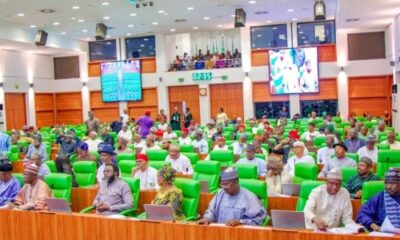The Economic and Financial Crimes Commission (EFCC) has confirmed the recovery of over N30bn from the N37,170, 855,753.44 allegedly laundered in the Ministry of Humanitarian Affairs under the former minister, Sadiya Umar-Farouk.
According to The Punch, sources in the anti-graft agency on Friday, said that the commission had also uncovered over N500m from the scam associated with Umar-Farouk’s successor, Betta Edu, who was recently suspended by President Bola Tinubu.
Earlier report, in December 2023, had it that N37,170,855,753.44 was transferred from government coffers and sent to 38 different bank accounts domiciled in five legacy commercial banks belonging to or connected with a contractor, James Okwete.
It was gathered on Friday that N30bn was recovered by the EFCC following the placement of a lien on the bank accounts of Umar-Farouq and Okwete, who are still being grilled by the anti-graft agency’s investigators.
The agency is also still grilling Edu in connection with an alleged N17bn fraud, while the suspended Coordinator of the National Social Investment Programme, Halima Shehu, is also still being questioned over an alleged N44bn fraud.
An EFCC source said, “The commission has now recovered over N30bn from the laundered N37.1bn that was linked to former minister Sadiya Umar-Farouq. We were able to recover the money after we placed liens on the bank accounts of the former minister and the contractor, Mr Okwete, who was linked to the fraud under probe. Both the minister and the contractor are still being grilled by our investigators daily.”
A senior EFCC investigator added, “We have uncovered another N17bn money laundering from the Ministry of Humanitarian Affairs, and for the alleged fraud linked to the suspended minister, Betta Edu, we have so far recovered over N500m. Edu is still answering questions about the fraud.
“The NSIPA coordinator, Halima Shehu, is still being grilled over the N44bn fraud linked to her at the NSIPA; our investigators aren’t leaving any stone unturned.”
When contacted for comments on the development, the spokesperson for the EFCC, Dele Oyewale declined comments.
In another development, the EFCC said it recovered a total of N70,556,658,370.5 between October 2023 and January 19, 2024.
Details of the recovery were outlined in an EFCC document titled, ‘Operations and Recoveries’, which was exclusively obtained by our correspondent.
The document revealed that in the period under review, the EFCC recovered N60,969,047,634.25, $10,522,778.57, £150,002.10 and €4,119.90, making a total of N70,556,658,370.5.
It added that the EFCC received a total of 3,325 petitions, accepted 2,657 of the petitions, and secured the conviction of 747 persons for financial crimes ranging from money laundering to Internet fraud in the same period.
A breakdown of the data shows that the EFCC headquarters alone recovered N49,607,391,330.44, $3,900,200.75, £2,000, and £110.
The Maiduguri Zonal Command recovered N58,065,870 and $3,370; the Gombe Command recovered N127,323,028.50 and $1,500; while the Kano Command recovered N141,944,451 and $365.
The Makurdi Command recovered N53,228, 325; Enugu Command, N202,117,000; and $1,950; Uyo Command, N25,299,950 and $710; and Port Harcourt Command, N2,412,247,210.05 and $5,714,389.21.
The Sokoto Command recovered the sum of N100,696,118.72; Kaduna Command, N331,494,710.81, $912, £50, and €1,610; Ilorin Command, N80,280,580.86 and $880; Abuja Zonal Command, N825,928,463 and $10,000; and Ibadan Zonal Command, N135,519,810, $14517, £280, and €500.
The Lagos Zonal Command was said to have recovered N6,826,993,798.78, $868,284.61, £147,672.10, and €1,899.90, while the Benin Zonal Command recovered n49,515,987.09 and $5,700.
Within the same period, the agency said it secured the conviction of 747 persons for offences ranging from money laundering to cybercrimes.
However, the Chairman of the EFCC, Ola Olukoyede, at a dialogue in Abuja on Wednesday, revealed that most of the 747 convictions involved persons who were prosecuted for cybercrime offences.
Meanwhile, the commission has said that it has deepened its probe into money laundering cases involving some high-profile public officials, especially former governors and ministers indicted for fraud.
The total amount involved in the money laundering cases rose to around N130.1bn as of January 31, 2024.
Details of the development were contained in an EFCC document titled, ‘100 Days in Office’, detailing ongoing probes, discoveries, and recoveries made by the commission under Olukoyede.
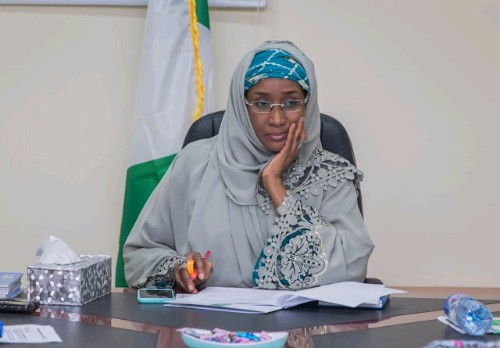

 BIG STORY3 days ago
BIG STORY3 days ago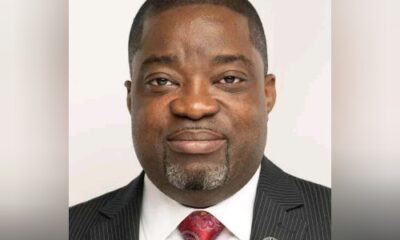
 BIG STORY1 day ago
BIG STORY1 day ago
 BIG STORY2 days ago
BIG STORY2 days ago
 BIG STORY4 days ago
BIG STORY4 days ago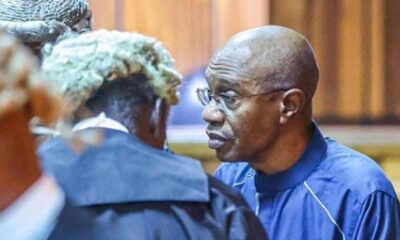
 BIG STORY3 days ago
BIG STORY3 days ago
 BIG STORY2 days ago
BIG STORY2 days ago
 BIG STORY3 days ago
BIG STORY3 days ago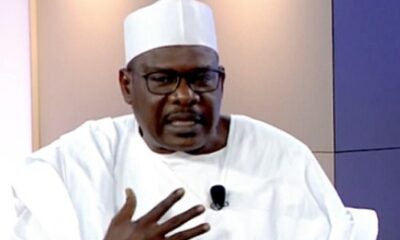
 BIG STORY13 hours ago
BIG STORY13 hours ago











